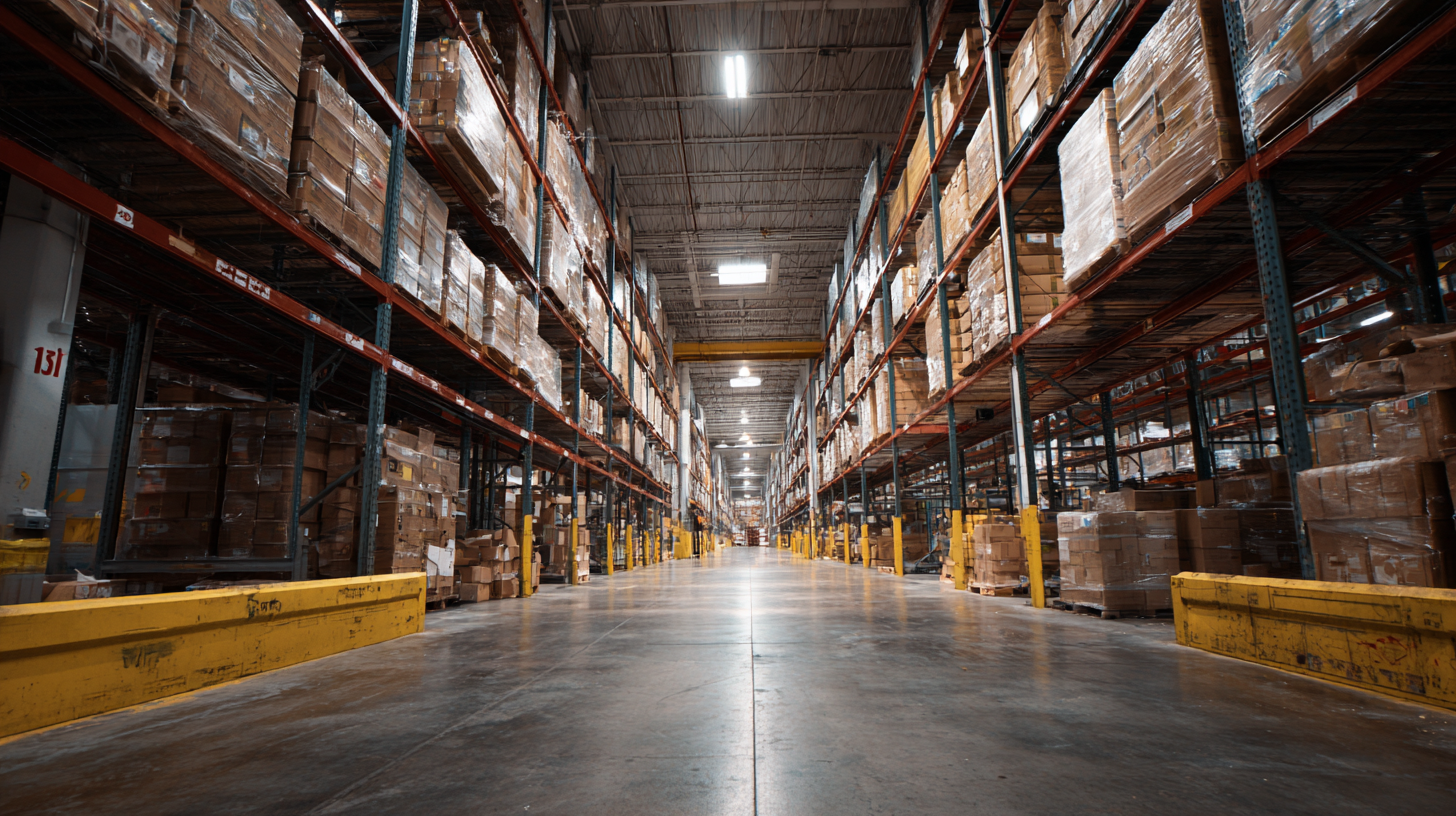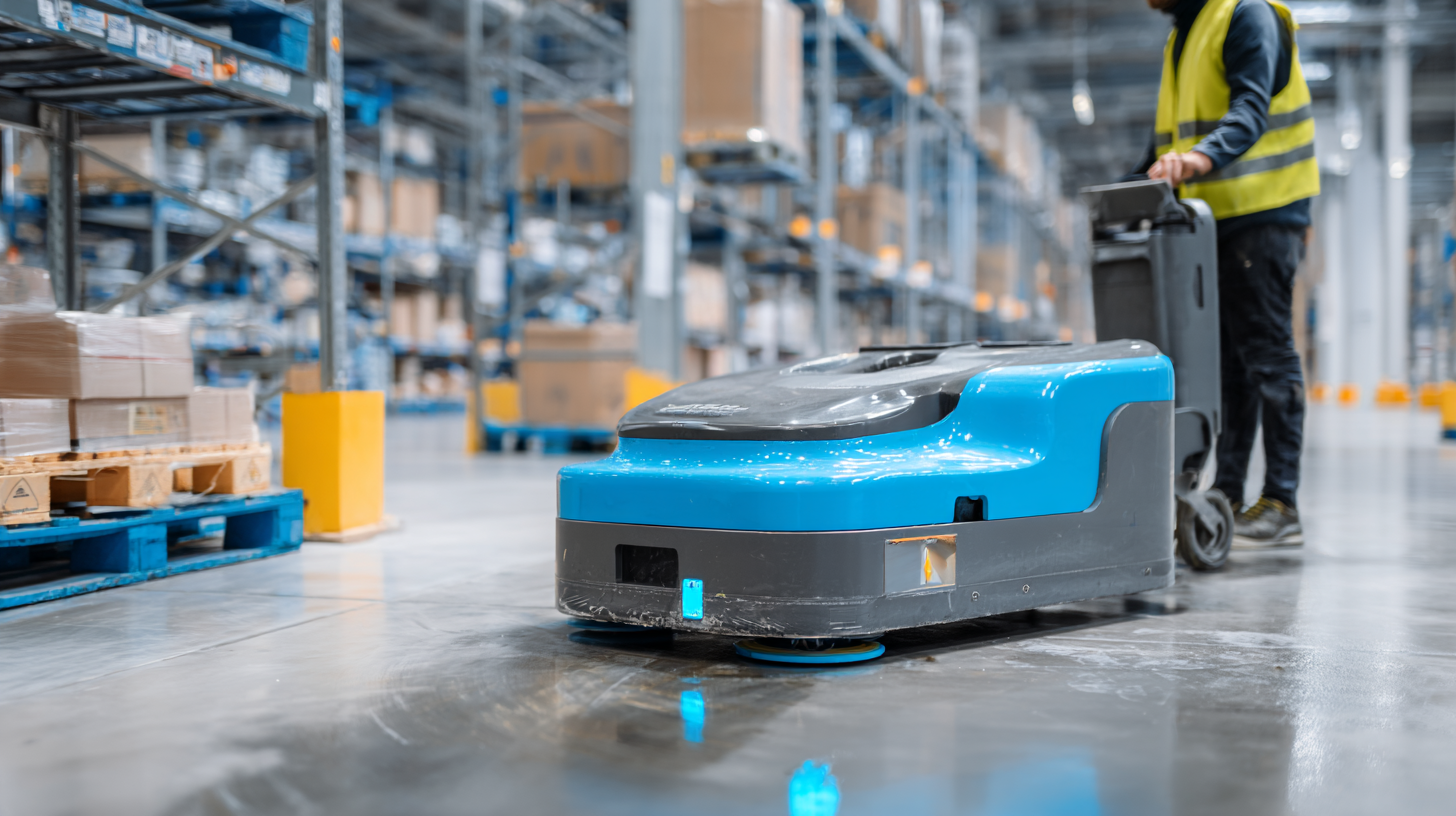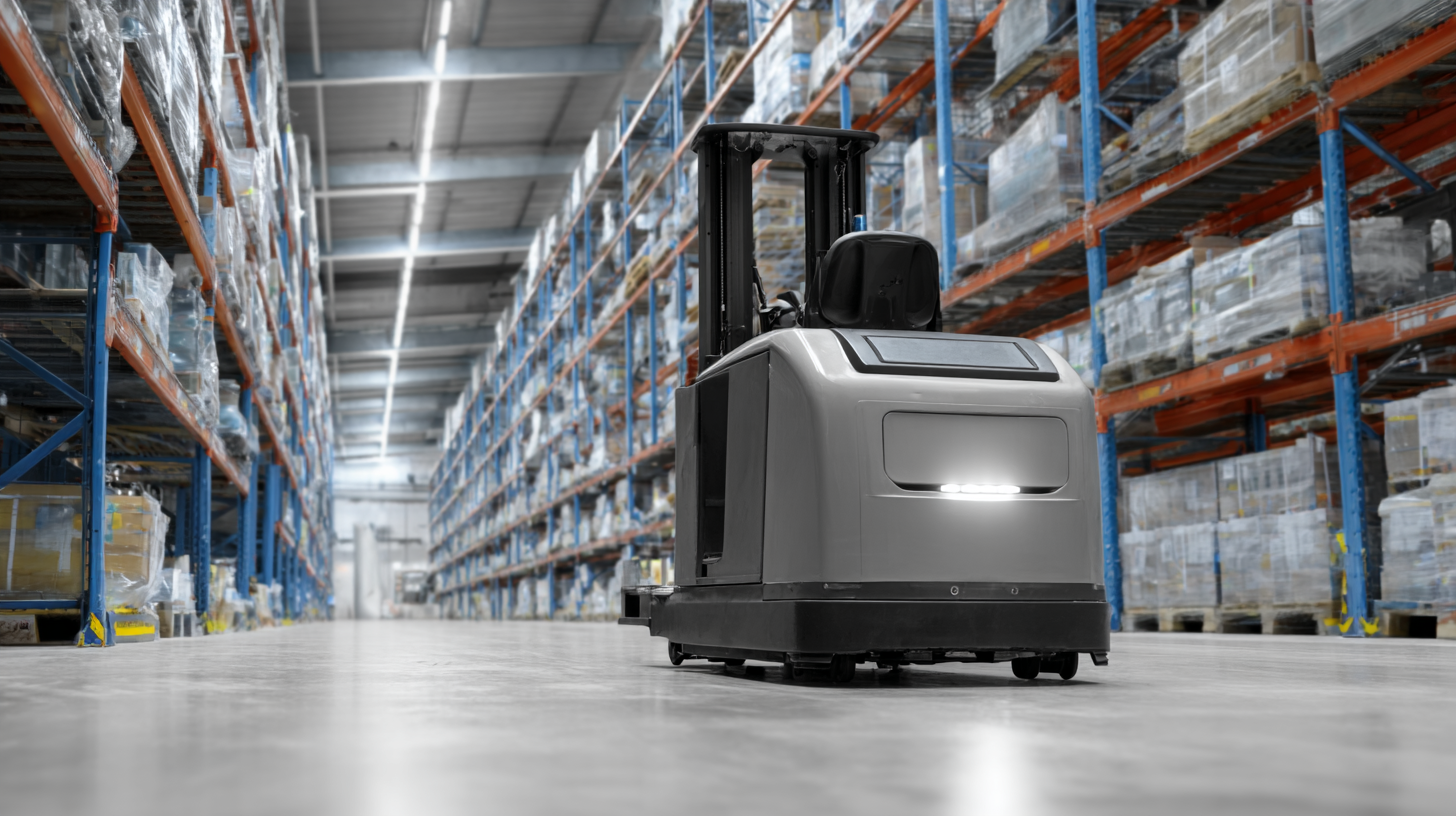Inquiry
Form loading...
In the ever-evolving logistics and warehousing sector, maintaining clean and safe environments is paramount. According to a recent report by IBISWorld, the warehouse cleaning services market has been growing at an annual rate of 6.1%, reflecting the increasing emphasis on cleanliness and safety regulations. Key to this growth is the demand for effective warehouse floor cleaners, which not only enhance the aesthetic value of a facility but also contribute significantly to operational efficiency. The right warehouse floor cleaner can prevent accidents, protect equipment, and prolong the lifespan of flooring materials. As companies seek innovative solutions to streamline their cleaning processes, understanding the unique features and applications of various floor cleaning products, as well as their alternatives, becomes essential for optimizing warehouse operations and ensuring a sustainable work environment.

When it comes to maintaining a clean and safe environment in warehouses, the selection of an effective floor cleaner is crucial. Effective warehouse floor cleaners share several key characteristics that make them indispensable in industrial settings. Firstly, they must possess strong degreasing properties to tackle heavy grease and oil spills often found in these environments. This capability ensures that floors remain slip-resistant and safe for employees, reducing the risk of accidents. Additionally, a good warehouse floor cleaner should be versatile, able to work effectively on various types of flooring such as concrete, tile, and epoxy.
Moreover, an effective warehouse floor cleaner should be easy to use and environmentally friendly. Simple application processes, such as dilution or ready-to-use formulas, can save time and labor costs. Eco-friendly options not only promote health for workers by minimizing exposure to harsh chemicals but also align with sustainable business practices. Furthermore, many modern cleaners can incorporate antimicrobial properties, helping to inhibit bacteria and fungi, ensuring a cleaner and safer working environment. With these key characteristics in mind, warehouse managers can make informed decisions when selecting the right cleaning solutions for their operational needs.
| Cleaner Type | Key Features | Effectiveness | Environmentally Friendly | Cost (per gallon) | Application Method |
|---|---|---|---|---|---|
| Heavy-Duty Degreaser | Powerful grease removal, fast-acting | High | No | $15 | Spray or mop |
| Floor Scrubber Solution | Designed for automatic scrubbers, gentle on surfaces | Very High | Yes | $25 | Used with floor machines |
| Neutral pH Cleaner | Safe for all surfaces, user-friendly | Moderate | Yes | $12 | Mop or spray |
| Eco-Friendly Cleaner | Plant-based ingredients, biodegradable | High | Yes | $20 | Spray or mop |
| Acidic Cleaner (for concrete) | Removes stubborn stains and rust | Very High | No | $18 | Dilute and mop |
When it comes to maintaining cleanliness in warehouses, choosing the right floor cleaner is crucial. Industrial cleaners, often favored for their powerful formulas, are designed to tackle the toughest grime and spills. According to a report by Grand View Research, the global industrial cleaning chemicals market was valued at over $36 billion in 2020, driven by the robust demand in sectors such as manufacturing and logistics. These cleaners typically contain harsh chemicals that ensure effective cleaning but may pose environmental and health risks.
On the other hand, eco-friendly alternatives are gaining traction as a sustainable option. Research from the Green Cleaning Council indicates that the green cleaning market is projected to grow by 11% annually, driven by increasing awareness of environmental issues and health consciousness. Eco-friendly cleaners utilize natural ingredients that are less harmful to the environment and human health. While they may not always match the immediate cleaning power of industrial cleaners, their long-term benefits, such as reduced chemical exposure and lower environmental impact, are becoming increasingly appealing to warehouse operators. Adopting these alternatives may not only satisfy regulatory requirements but also enhance the overall workplace environment.

When it comes to maintaining warehouse cleanliness, selecting the right floor cleaner can significantly enhance safety and efficiency. Top-rated warehouse floor cleaners are designed with unique features that cater specifically to industrial environments. These cleaners often incorporate high-performing formulas that tackle tough stains, oils, and spills commonly found in warehouses. Advanced surfactants allow for effective penetration and emulsification of grime, ensuring a thorough clean without damaging the flooring material.
In addition to superior cleaning capabilities, the benefits of these products extend to their ease of use and versatility. Many warehouse floor cleaners come in concentrated forms, allowing for customization based on the level of soiling and the surface type. Environmentally friendly options are increasingly available, enabling warehouses to maintain cleanliness while adhering to sustainable practices. Furthermore, using the right floor cleaner can contribute to maintaining regulatory compliance, as keeping floors free of hazards is critical to employee safety and minimizing liabilities. By investing in quality cleaners, warehouse managers can create a safer, more productive working environment.
Maintaining clean warehouse floors is crucial not only for safety but also for preserving the lifespan of the flooring materials. According to recent best practices, managers should focus on seven key steps to ensure effective floor maintenance, including regular inspections, proper cleaning routines, and addressing spills immediately. This proactive approach not only prevents degradation of the flooring but also enhances the overall operational efficiency of the warehouse. In fact, autonomous mobile robots (AMRs) are becoming increasingly popular in warehouses, as they can significantly improve productivity by delivering consistent cleaning without the downtime associated with traditional methods.
Furthermore, the use of specialized floor cleaners, such as polished concrete sealers, has been shown to enhance the durability and aesthetic appeal of warehouse floors. A case study demonstrated that appropriately applied sealers significantly reduce the wear and tear associated with heavy foot traffic and machinery, resulting in lower long-term maintenance costs. Implementing advanced cleaning technologies and adhering to industry best practices not only optimizes warehouse operations but also aligns with heightened standards in cleanliness and safety expected in modern warehousing environments.
When selecting the right cleaner for specific warehouse surfaces, it’s essential to consider the unique characteristics of each flooring material. According to a report by the International Facility Management Association, up to 70% of safety hazards in warehouses can be attributed to poorly maintained floors. For concrete surfaces, alkali-based cleaners are often the most effective, as they help break down grease and dirt without damaging the substrate. On the other hand, tile flooring typically requires a pH-neutral cleaner to prevent dulling the surface and ensuring slip resistance.

In environments with specialized flooring, such as epoxy or polished concrete, choosing the right cleaner can prolong the floor's lifespan and aesthetic appeal. A study from the Cleaning Industry Research Institute (CIRI) indicates that using the wrong cleaner can prematurely wear down protective coatings. For example, using acid-based cleaners on epoxy can cause significant harm, leading to costly repairs. Therefore, warehouse managers must evaluate the surface type, the nature of the accumulated contaminants, and the cleaner's compatibility to maintain both safety and cleanliness in their facilities.
